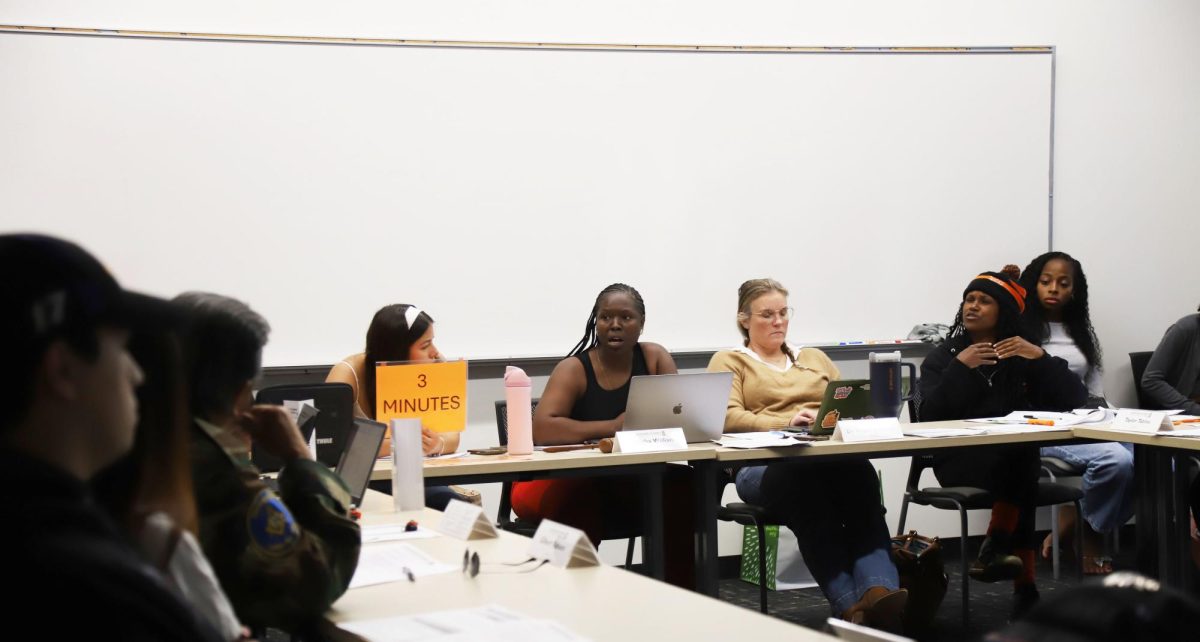By Zachary Porcu
By Zachary Porcu
If you’re a student going to college, it’s probably because your parents told you that in order to succeed in life, you needed an education.
Of course, it probably wasn’t just your parents; it was probably all of your teachers up through high school, too.
Further more, this message was probably communicated to you in a number of ways: through media, movies, television programs and magazines.
The message that college will be enriching and beneficial to every young student is a belief foisted upon the unsuspecting youth from many directions.
Unfortunately, this belief is false. Contrary to this culturally ingrained idea, college is not for everyone, despite what the entirety of our culture tells us.
College is a business like any other, and a very lucrative one at that. But more diabolical still, it is a business that has, through culture and societal norms, become almost mandatory in regards to job security. And on top of this, it is a business that takes your money and most of the time gives you none of what it promised you in return.
First, however, let’s not dismiss the obvious. If one consults the National Center for Education Statistics, one will note that there is a significant financial advantage to possessing a bachelor’s degree.
Studies show that since 2000, the average median annual income for full-timers with a bachelor’s degree or higher was around $50,000 for men and $41,000 for women, compared to the $30,000 and $24,000, respectively, earned by those with only a high school diploma or GED.
This is well and good, but one has to remember that this category is applicable only to those who have actually earned their bachelor’s degrees, and college dropouts don’t fall into this category.
But who drops out of college, you may ask?
The Department of Education tells us that 30 percent of students drop out after the first year, and that a baffling 50 percent never graduate.
Gayla Martindale at State University writes, “It is estimated that 40 percent of college students will leave higher education without getting a degree, with 75 percent of these students leaving within their first two years of college.”
So yes, a graduate in possession of a bachelor’s degree will earn considerably more, but this will happen only to half of the population, at best.
The other half is pumping significant amounts of money into a business from which they will get nothing.
But wait a minute, why are we expecting everyone to go to college and get their bachelor’s degree? Why is our culture rewarding this kind of behavior?
What about the large portion of the population who is not academically-minded at all?
What about the people who are good with their hands, who can solve problems quickly and intuitively, and have a talent for interacting with people, or who have a knack for a particular trade?
It turns out these people don’t necessarily need to be in college at all. But again, college is a business, and businesses want to make money.
While it is true that trade schools and vocational schools exist, much of the time there is still a tremendous push towards getting that “little piece of paper.”
The result of this is to pressure those who are not academically-minded into an academic setting instead of allowing them to hone their natural talents.
On the flip side, those who are in fact academically-minded and who actually do need to be in college can’t focus on what they need to be doing because they find themselves in a classroom full of people who don’t care, people who are there only because they are trying to ensure their job security.
And so we return to the wage difference. Why do graduates get paid more than others?
It turns out to be a matter of convention. Do they know how to do their job any better than another? Not necessarily.
It would be one thing if a bachelor’s-level degree actually constituted a set of knowledge or experience that one could utilize immediately.
True, students with a particular major know a little more about that subject, but only more than the layman. They don’t know as much as the experts and they certainly don’t know enough to make them competitive.
Indeed, for most academic or scholarly majors, a bachelor’s degree just won’t cut it.
College demands even more money in the post-graduate years before actual useable knowledge is bestowed on the student, or at the very least, marketable knowledge.
But for the majority of students who do not acquire their post-graduate degrees, an undergraduate degree constitutes a slip of paper. The joke is that most graduates end up in careers that have little to nothing to do with their major anyway.
This is because most businesses don’t require you to know what you’re doing, only that you wave your little piece of paper saying yes, college validated my parking stub, so now you can pay me.
What kind of culture is this? It is one that tells all students, regardless of their individual talents and dispositions, to go to college and get degrees.
It is a system that rewards only the academic, but even then, it is merely a bland going-through-the-motions of academia, a sorry parody of actual learning
And so we come to a sad realization: You don’t have to walk out of college understanding anything. You don’t have to know how to do anything. You only have to possess that stamp of approval, a little stamp that costs thousands and thousands of dollars.






